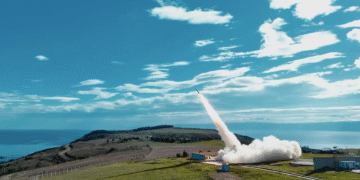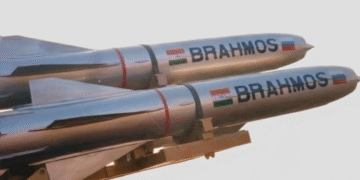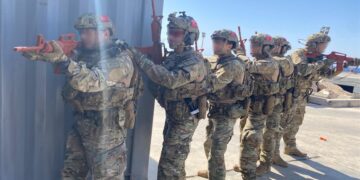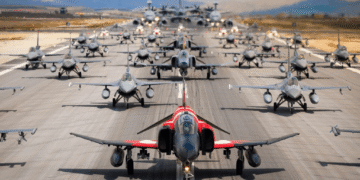There is no point in still debating whether a phenomenon that has been named will happen or not.
If a concept has gained acceptance in everyday language and achieved widespread understanding among society, it means it has already found a place in the collective subconscious.
Even if the “Istanbul Earthquake” were never to occur, as some academics claim, all concerns regarding today’s societal perception must be taken seriously, and it must be clearly understood that this is not a matter to be taken lightly.
The Istanbul Earthquake is a phenomenon that cannot be gambled with. In this region, where the population density of our country is the highest, if there is any mention of earthquake faults, all necessary precautions should already have been taken; if not, mobilization for their implementation must begin without a single second of delay.
There is nothing more to say or write.
Concepts such as social consciousness and social awareness should, in my view, now only be considered necessary for school-age children. A society that has experienced massive earthquakes like those in 1999 and 2023 and their consequences, despite all efforts over the past 25 years, has still not reached a sufficient level of awareness and consciousness. This requires analytical examination, and new methods must be developed. It should be recognized that new methods are needed for a goal that has not been achieved in 25 years.
Even today, we see proposals such as a “Ministry of Disasters” or “Ministry of Earthquakes” being voiced and shared by highly esteemed academics. However, we believe that a “disaster” represents a process of failure. We are trying to explain how misguided it is to establish a ministry for a negative objective. We believe the correct expression should be “Predicting Risk and Preventing Danger.” Just like in Azerbaijan’s Ministry of Emergency Situations, Russia’s Ministry of Civil Defense, Emergencies, and Elimination of Consequences of Natural Disasters, Chile’s National Service for Prevention and Emergency Response (Senapred), the United States Federal Emergency Management Agency (FEMA), and similar institutions in other countries, the naming of Turkey’s Disaster and Emergency Management Authority (AFAD) should be carefully examined, and the purpose of institutional naming must be fully understood.
It is an undeniable truth that without nationwide mobilization in the disaster prevention process, there is no chance of creating a resilient society. High-tech resources used solely by public institutions will not be sufficient to manage the dynamics of a major disaster. We must establish a holistic system where the public is at the center, and each element works in synchrony for the same purpose, in line with the spirit of collective effort that has been part of our cultural heritage for thousands of years.
In the pre-disaster phase, at the moment it gains momentum, and in the aftermath, technological infrastructure must be established and used to gather data and transform it into actionable information for decision-making. Only then will decisions concerning the disaster-affected areas contribute effectively. Decisions about which house on which street should receive limited resources must be based on options derived from big data analysis.
Alongside the strong preparation of public and local authorities, civil society organizations must also develop and strengthen in an integrated manner. Civil society organizations must be considered in communication processes during disaster dynamics. Today, civil society organizations that operate according to their own missions, without succumbing to international artificial networks, should receive support from public or local authorities. They should be provided with public financial support or controlled fundraising opportunities to sustain their operations.
Workshops on predetermined topics should be organized almost every week in different institutions, and new solution options should be explored.
The necessary steps are almost clear. Decision-makers must show determination and implement these solutions in practice. There is no more time to wait. We will solve this. Otherwise, we will face serious societal trauma due to mass deaths and injuries. We risk losing the future today. We must be rational. We must be smart. We must be realistic.
Time is up, words are over now…
The recent Istanbul Earthquake must be meticulously examined and analyzed repeatedly by all our country’s academics, bureaucrats, public employees, local administrators, private sector representatives, civil society organizations, and citizens. All projections for the near future must be executed realistically and effectively.
Plans that the public does not participate in, internalize, or adopt will never work.
Every potential cause of disaster is a “defense” issue for our country…
And planning conducted only by professionals is not sufficient for comprehensive defense.
Plans that lack full public involvement are ineffective…
Summer is over, the day has turned now…
If only we could do more than just write and draw…
Unfortunately, this is all we can do…
Just this…
























